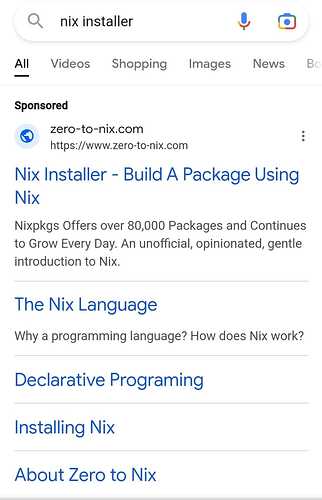Hey Graham,
Since this is a declaration of terror against the community version of Nix, I think some words need to be said.
Determinate Nix is not a fork of Nix—it is a downstream Nix distribution.
We will continue to add new features to Determinate Nix to make the Nix user experience ever smoother for teams. These include better authentication support for flakes and binary caches, flake schemas, parallel evaluation, and much more.
This is classic gaslighthing - a manipulation technique meant to confuse readers and prevent them from fully understanding what’s happening.
Let me rephrase it for you:
We, DetSys, are going to develop things in our fork and if the upstream OSS doesn’t accept these changes, we’re going to diverge from this fork and claim ours is better.
Since Eelco Dolstra is complicit in this and we have tried to convince him to rather work for the NixOS Foundation, I must say I’m disappointed, but not surprised.
I have seen this coming ever since you sponsored your installer over the official installer using ads in Feb 2023:
In recent years we got Lix and Tvix due to a lack of leadership and people from Nix Core team have resigned from working on Nix.
Splitting the community over who develops Nix and pushing for stabilization of flakes without addressing the downsides is not leadership; it’s divisive. We have usually normalized banning people with such behavior.
Finally, this not only fails to create a safe environment for community members but also affects companies like Cachix, which I founded long before Eelco became involved in moving this into the commercial space.
I won’t be contributing to Nix anymore and will put my efforts into Tvix, where I have confidence this kind of behavior won’t be tolerated.
All the best, Domen
